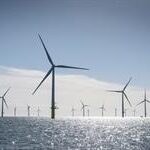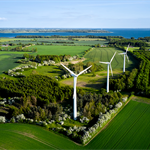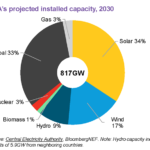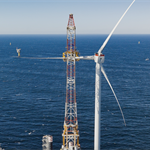European Commission targets 55% greenhouse gas emissions cut by 2030
Energy Disrupter

The European Council has approved a target of cutting the bloc’s greenhouse gas (GHG) emissions by at least 55% by 2030 from a 1990 baseline.
It voted for the 55% target towards the end of a European Council meeting held on 10-11 December – the talks involved the leaders of all 27 EU member-states in Brussels.
This is a 15-percentage-point increase from the EU’s current 40% GHG emissions reduction target, but five percentage points below the 60% reduction target wanted by the European Parliament.
MEPs still need to approve a new goal.
In a brief statement posted on Twitter, president of the European Council Charles Michel said: “Europe is the leader in the fight against climate change. We decided to cut our greenhouse gas emissions of at least 55% by 2030.
“This was a marathon European Council … with a great result for Europe! We now have the means to power forward our climate and digital strategies for the 21st century. Unity doesn’t just happen, it has to be worked for.”
The announcement came as the council said it would help to foster European cooperation in offshore and other renewable energies.
The moves give political direction for an ‘enabling framework’ for cross-border and renewable energy projects, and follow-up on the EU Offshore Renewable Energy Strategy, officials said.
The internal energy market must be further integrated, through enhanced interconnectivity among member states, infrastructure and grid development, as well as storage solution, the EC stated, to ramp up renewable energy deployment.
The announcements mean backing for cross-border joint and hybrid offshore projects, combining electricity generation, transmission and energy trade, as well as supporting the integration of greater volumes of renewable energy into the European electricity market.
More support is also needed for research, innovation and demonstration, as well as supply chain development to slash the costs of renewable energy deployment, the Council stated.
The assessments considered a wide range of technologies from bottom-fixed and floating offshore wind and solar energy to tidal energy, geothermal energy and biomass.
In September, the European Commission voted to increase its 2030 target for emission reductions to at least 55%, but the next month, the European Parliament voted for a 60% target and called for all direct and indirect fossil fuel subsidies to be phased out by 2025.
The European Council’s 55% ambition is 13 percentage points below the 68% target by the UK announced by the UK earlier this month.
















